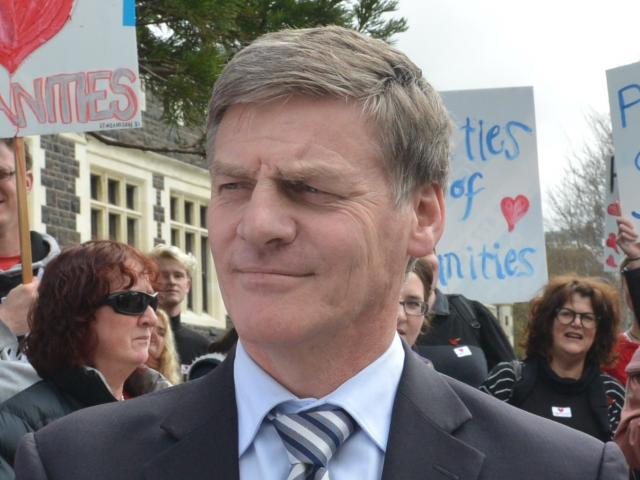
As a long-standing minister of finance, Mr English has rubbed shoulders with the most powerful financiers on the planet. But being Prime Minister lifts the stakes considerably and he has played to his strengths and been rewarded with reasonable hearings in London, Berlin and Brussels.
Although not receiving any iron-clad guarantees on trade, Mr English received enough encouragement to predict New Zealand aims to start talks on a free-trade deal with the European Union as soon as possible.
He spoke after meeting German Chancellor Angela Merkel, who endorsed the idea. Ms Merkel told reporters at a joint news conference with Mr English she would press the 28-nation EU to work towards a quick trade accord with New Zealand.
There are no plans to link such an accord with New Zealand's willingness to take in more refugees, but Ms Merkel welcomed the country's plans to provide more agriculture-based development aid to African countries.
Mr English also secured a meeting with British Prime Minister Theresa May, all the time putting up a convincing case of why New Zealand should be involved in trade deals with Britain and the EU.
Mr English has lived in the shadow of former prime minister John Key but it is widely known, while Mr Key was adept at selling New Zealand offshore, it was Mr English who prepared the material.
It was Mr English who met with overseas financiers to talk about New Zealand's borrowing and repayment obligations, and he dealt with the ubiquitous credit ratings agencies which sometimes took a different view to those of Mr English.
Now, the new PM has changed the way New Zealand will be regarded on the world stage with a style of his own. This country is just a junior partner in many arrangements and he will now understand, after his European tour while Donald Trump prepares to become United States president later this week, just how the country fits into global thinking.
One of the encouraging signs is Mr English's commitment to trade, even going so far as to express hopes of some form of trans-Pacific trade agreement which would include Japan.
Mr English, and his wife Mary, were seen remembering fallen soldiers at places like Passchendaele, always a sombre experience for any New Zealander visiting the killing fields of Europe. And both Mr and Mrs English adopted the right tone at whatever function they attended.
This was no learning curve experience for the Prime Minister. The trip was about broadening his already extensive knowledge of global affairs and lifting the level of engagement with world leaders. No longer does he stand in the shadow as the policy and financial ``wonk'' of National. He deservedly can reflect well on his first trip.
However, there are issues at home with which he must now deal, not the least the ongoing problems with housing affordability and inequality.
There is still some unrest among some about New Zealand's involvement with the United Nations Resolution 2334 which censured Israel. No satisfactory explanation has been given as yet as to why New Zealand co-sponsored the agreement.
Mr English has made it clear he will not attend Waitangi Day this year, despite receiving apologies for several misunderstandings about his right to speak on the day.
He will attend Ratana a day early because of a clash with the first Cabinet meeting of the year, an important one for both him and his colleagues at the start of an election year.
Mr English has proved he is a capable representative of New Zealand on the world stage. He now has to show Kiwis why he deserves to be their Prime Minister, possibly the more difficult task.












